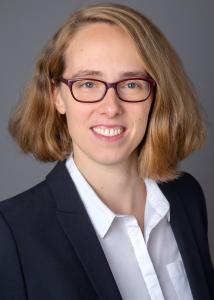Young Leaders Think Tank Residential Workshop - Foundation Office Uganda and South Sudan
Workshop
Details
The “Young Leaders Think Tank for Policy Alternatives” (Think Tank) is an initiative of the Konrad-Adenauer-Stiftung to enhance youth participation in governance and policy formulation in Uganda. The Think Tank is a group of highly qualified and committed young Ugandans, who interact and work together on a regular basis to analyze policy issues and develop policy alternatives from the perspective of the young generation. The group members lead by example in the promotion of issue-based and constructive dialogue and debate, adhering to the guiding principles of tolerance and objectivity.
Since it was founded, the Think Tank has conducted extensive research resulting in the development of policy papers on key development topics. The issues which have been addressed include: employment, education, health, electoral reforms, and HIV policies. The developed papers have been shared with a cross-section of stakeholders and are presented as policy alternatives from the perspectives of young people. In general, the papers have attracted wide ranging interests of key players in Uganda and the diaspora. The Think Tank has over the years met with key players in relevant policy areas in Uganda and abroad some of whom include the Ministry of Education and Sports, the National Planning Authority, the Parliament of Uganda, Uganda Law Reform Commission, politicians and Civil Society actors from Germany among others. The meeting with the National Planning Authority, for example, gave the Thank Tank a chance to contribute to the nationally launched Vision 2040 – Uganda’s development framework for the next 26 years. The constitutional review process also gave the think tank an opportunity to recommend some policies that reflected the aspirations of the young people in accordance with the mandate of the Think Tank.
With the growing realisation of the need to be a demand driven think tank, members agreed to research and review the agriculture sector policies in Uganda with a view of coming up with some radical yet practical recommendations that could lead to the transformation of the sector. Uganda is known as a largely agricultural country. However, the biggest population - the youth – are either are not interested in the sector or at least reluctant to join the sector to harness its potential for economic development personally and for the country.
Out of the round 11 million youths in Uganda, over 80% live in rural areas with females constituting the largest share (UBOS, 2010). The cohort of Ugandans between 12 and 30 years is the largest in history and is growing (IYF, 2011). Ideally, the rural areas provide a ripe environment for agriculture given that there are still large chunks of unused land as well as the presence of many youth, who are not productively engaged and are available as labor. This context strengthens the call for a policy around agriculture that addresses the challenged keeping the sector form fully flourishing and realizing is developmental, but especially job-generating potential.
While many young Ugandans seek formal employment in the service sector, it is clearly not large enough the provide a lasting solution to youth unemployment, demonstrated by the fact that the number of people entering the labor force far outweighs the number of jobs available in the formal wage sector (Ahaibwe, Mbowa and Lwanga, EPRC, June 2013). The Young Leaders Think Tank for Policy Alternatives interrogates the available options to absorb the large numbers of unemployed youth. The untapped potential in agriculture provides the opportunity for Uganda to move to another level. The agriculture policy paper looks at the different perspectives and provides workable alternatives. Key debate will be the question how the two strands of developmental theory around agriculture can be combined. One school would put forward an approach of market opening and incentivizing large scale investors to realize quick economic development benefits. On the other hand, agriculture as the sector that shows the most promise for sustainable poverty reduction for the rural population combined with the strong dependency of the Ugandan population on subsistence farming, calls for a policy of protectionism and capacity building of local farms and cooperatives. As these tow policy directions are inherently contradictive, the Think Tank will interrogate their validity and the possibilities of building a national policy stand that combines both and creates a hybrid policy to will realize benefits for both large scale economic impact as well as rural empowerment and wealth creation.
During the two day residential workshop, the Think Tank members will have the possibility to discuss the work of the working group on agriculture so far and work on it in depth in order to provide the best possible policy recommendations.




